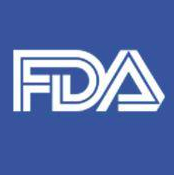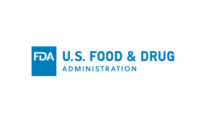FDA Speaks Out on the Future of Cannabis-containing Food Products

On Friday, the U.S. Food and Drug Administration (FDA) released a statement regarding its current, science-based stance on the use of cannabis or cannabis-derived compounds, including cannabidiol (CBD), in various products including food.
The statement, authored by FDA’s Principal Deputy Commissioner Amy Abernethy, M.D., Ph.D., and Principal Associate Commissioner for Policy Lowell Schiller, J.D., shares how the agency is approaching decision-making as public interest cannabis products rises. The statement was deemed necessary by the agency as some state laws have changed in recent years and an increasing number of products that contain cannabis are introduced to the market.
“We recognize that there is significant public interest in these products, for therapeutic purposes and otherwise. At the same time, there are many unanswered questions about the science, safety, and quality of many of these products. As we approach these questions, we do so as a science-based regulatory agency committed to our mission of protecting and promoting public health.”
Here is what the agency’s statement says in regards to cannabis in food:
Food, including dietary supplements, is regulated differently [vs. drugs], but with the same overarching goal of protecting consumers. Among other things, it is currently illegal to put into interstate commerce a food to which CBD has been added, or to market CBD as, or in, a dietary supplement. Essentially, the relevant statutory provisions prohibit these uses of CBD because CBD was the subject of substantial clinical investigations into its potential medical uses before it was added to foods (including dietary supplements), and, separately, because CBD is the active ingredient in Epidiolex, an FDA-approved prescription drug product to treat rare, severe forms of epilepsy.
At the same time, we recognize that there is substantial public interest in marketing and accessing CBD in food, including dietary supplements. The statutory provisions that currently prohibit marketing CBD in these forms also allow the FDA to issue a regulation creating an exception, and some stakeholders have asked that the FDA consider issuing such a regulation to allow for the marketing of CBD in conventional foods or as a dietary supplement, or both. This raises important and challenging questions of regulatory policy and public health.
FDA agrees that there are many unanswered questions on the topic. Is there a cannabis threshold level that could appropriately be considered safe for foods? How much CBD is safe to consume in a day? How does it vary depending on what form it’s taken? Are there drug interactions that need to be monitored? What are the impacts to special populations, like children, the elderly, and pregnant or lactating women? What are the risks of long-term exposure?
These and other questions, says FDA, need to be considered if there is interest in exploring a framework under which CBD might be available more widely.
More on cannabis in food:
Adding Cannabidiol to the Menu
Food Safety and Cannabis Edibles
How Leaders in the Cannabis Industry Are Implementing High Standards for Food Safety in an Unregulated Environment
Sign up for Food Safety Magazine’s bi-weekly emails!
Subscribe to our podcast: Food Safety Matters!
Looking for a reprint of this article?
From high-res PDFs to custom plaques, order your copy today!





